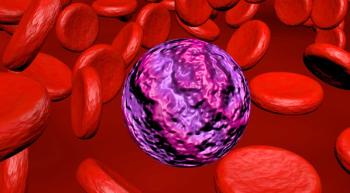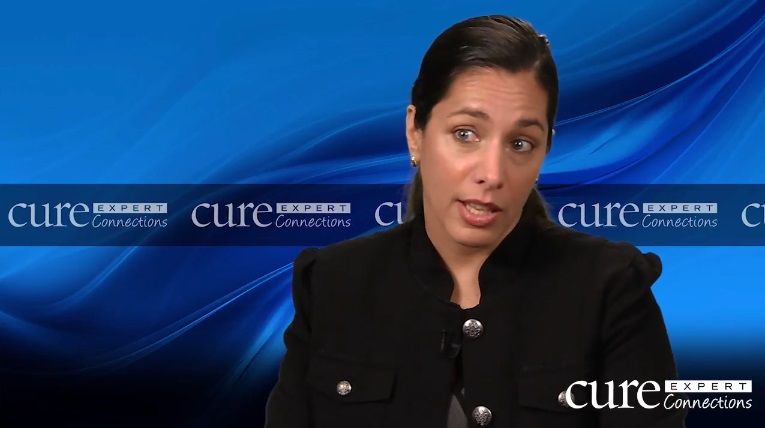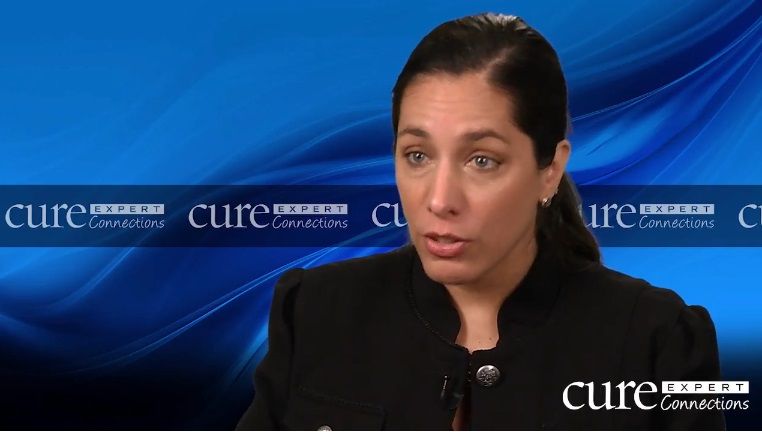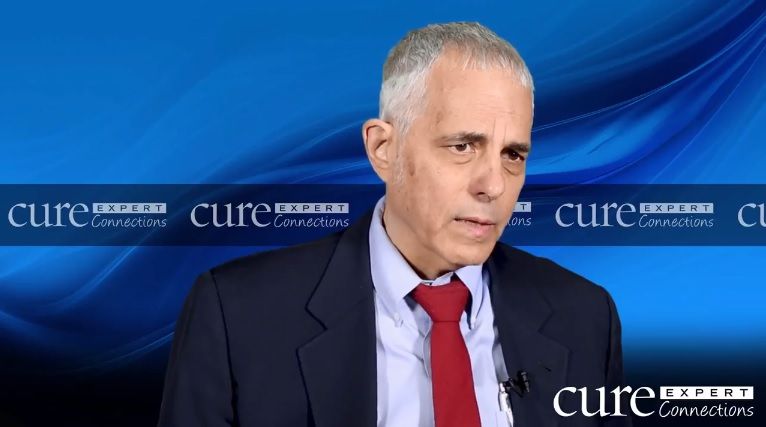
Leukemia
Latest News
Latest Videos

More News



From one leukemia survivor organizing essential blood drives for patients with cancer as COVID-19 delays hit, to a kindergarten teacher handling a recurrence of ovarian cancer by continuing to teach her students through Zoom, here’s what’s happening in the cancer landscape this week.

The Food and Drug Administration approved the supplemental new drug application for Iclusig (ponatinib) to treat patients with chronic-phase chronic myeloid leukemia (CML) with resistance or intolerance to at least two prior kinase inhibitors.

Emily Whitehead was the first child to receive chimeric antigen receptor (CAR)-T cell therapy. Eight years later, she and her parents discuss her ongoing remission from acute lymphoblastic leukemia.

From a recently published study showing preliminary connections between elevated levels of stress-related hormones and cancer recurrence, to a Texas mayor receiving a diagnosis of cancer and COVID-19, here’s what’s happening in the cancer landscape this week.

A retrospective study of patients with COVID-19 showed that those with cancer were not more likely to experience severe symptoms or death due to the virus than those without cancer. Rather, only age and obesity were associated with poor COVID-19 outcomes.

From “The Wanted” singer Tom Parker announcing he has been diagnosed with stage 4 glioblastoma and is undergoing treatment, to a Houston-area father receiving treatment for leukemia surprising his daughter on her wedding day, here’s what’s happening in the cancer landscape this week.

From a child from Indiana donating funds from a pumpkin sale to a local cancer charity, to a researcher at Stony Brook University being sentenced to prison after stealing $225,000 in cancer research funds, here’s what’s happening in the cancer landscape this week.

Family of First Patient with Pediatric Cancer to Receive CAR-T Cell Therapy Opens Up About Treatment
Emily Whitehead’s family details her journey with cancer and how advocating for their daughter led to Emily’s extraordinary CAR-T cell therapy treatment.

CLL patient shares his experience with the disease and the importance of aiming to live his life to the fullest despite his diagnosis.





The FDA’s fast track designation for BST-236 to treat adults aged 75 years or older with acute myeloid leukemia, or who have comorbidities that prevent the use of intensive induction chemotherapy, may open the doors to an accelerated approval.

A patient assessment tool, known as the Functional Assessment of Cancer Therapy–Leukemia (FACT-Leu), was a viable and valid outcome measure for patients with acute myeloid leukemia not eligible for intensive therapy.

“Overall, the take-home point is that it's a small study so far and the follow-up time is still short, but it is pretty exciting preliminary data,” said Dr. Courtney DiNardo about the combination of Tibsovo plus Venclexta – with or without Vidaza – in IDH1-mutated acute myeloid leukemia.

A three-drug treatment sparked complete responses in more than half of patients with high-risk chronic lymphocytic leukemia, who also tolerated the regimen well.

“When time passes, and you look back it seems like a distant memory.”

“At 34, I have another chance to live the rest of my life with a consciousness that there's great purpose in the pain.”

From a care team giving a patient with metastatic breast cancer a taste of Paris after a planned trip had to be canceled to a local group of veterans honoring one of their own after a lung cancer diagnosis, here’s what’s making the headlines in the cancer space this week.

“If I only have one tool to treat the disease, I will play with that tool in many different ways. But if I have access to four different tools, then I will give up tool (number) one if I don't feel it's working,” explained Dr. Mazyar Shadman of the Seattle Cancer Care Alliance, about his approach to treating high-risk chronic lymphocytic leukemia in an interview with CURE®.

From the National Cancer Institute launching a nationwide study of patients with cancer who either have COVID-19 or are being tested for it to understand the disease to “St. Elmo’s Fire” and “Batman and Robin” director Joel Schumacher passing away from cancer, here’s what’s making the headlines in the cancer space this week.

The phase 3 trial evaluating eprenetapopt plus Vidaza completed enrollment recently, and could lead to a new standard of care with positive results, according to Dr. Guillermo Garcia-Manero.














